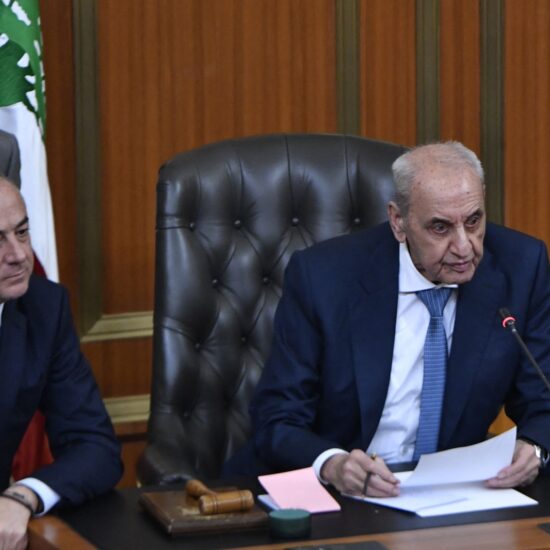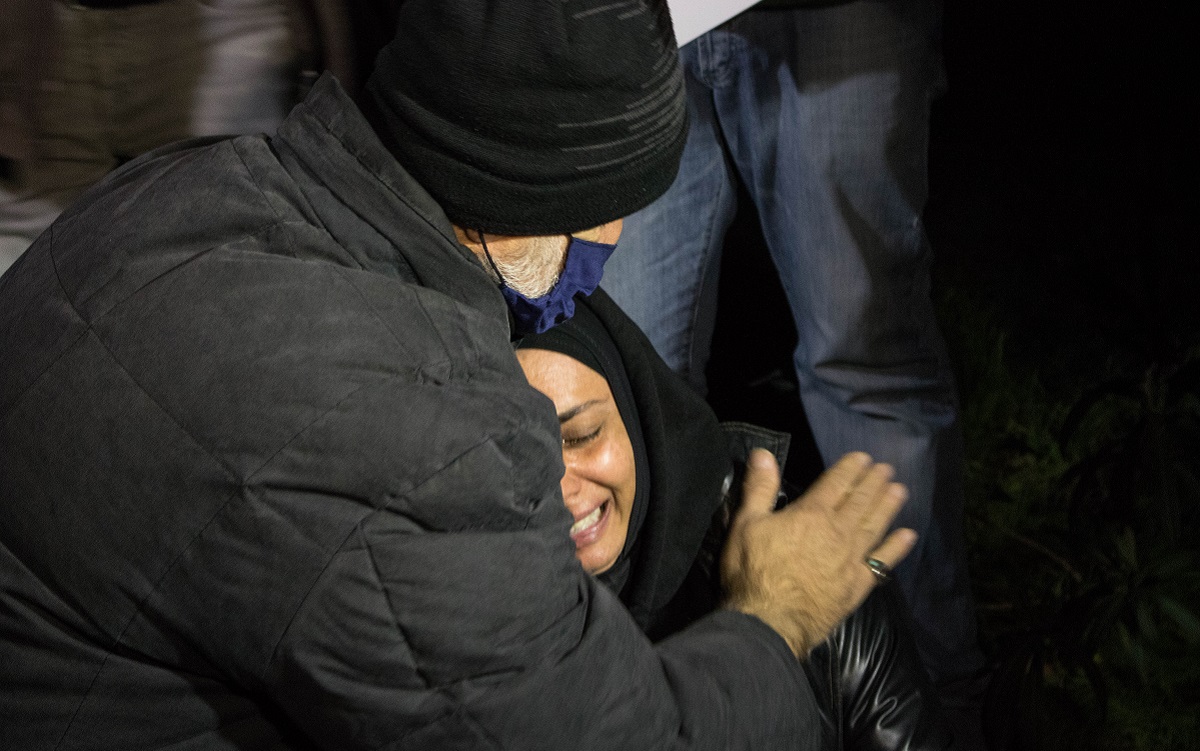
No accountability.
That is how Aya Majzoub, the Lebanon and Bahrain researcher for Human Rights Watch’s (HRW) Middle East and North Africa Division, described the investigation into the August 4 Beirut Port explosion that killed 204 people, injured 7,500, and caused US$15 billion in property damage. An estimated 300,000 people were left homeless.
The investigation has been marred by near-constant interference by Lebanon’s political elite, while the judiciary has been bending over backward to avoid charging any political officials.
On Tuesday, rights groups, including Amnesty International and Human Rights Watch, called for a UN investigation and a one-year fact-finding mission, although on many occasions Lebanese officials have rejected the possibility.
“As we approach the one-year anniversary of the explosion, the case for such an international investigation has only strengthened,” said a joint letter signed by 53 Lebanese, regional, and international rights groups in addition to survivors and families of the victims.
One of the largest non-nuclear blasts in history was caused by a vast stock of ammonium nitrate that had sat for years in a port warehouse in the direct vicinity of residential districts.
The lead investigative judge on the case, Tarek Bitar, said at the beginning of June that he will soon start interrogating suspects after completing a preliminary phase of investigations.
A recent report submitted by French investigators assisting in the local probe dismissed the likelihood of such an attack, a judicial source told AFP.
“The continuing failure of the domestic process reinforces the need for an international investigation to determine the causes of the explosion and who was responsible,” HRW said in a separate statement.
“The cost of such a failure includes not just the absence of justice for victims, but the… risk of further abuse and negligence by the responsible parties.”
Majzoub, who has been researching and reporting on human rights violations in Lebanon for two and a half years, has been following the investigation into the explosion since it occurred and has continued to highlight the various issues plaguing it for months.
Human Rights Watch has repeatedly called for an independent, international investigation to be conducted, and has criticized the political involvement in the current investigation and raised concerns over the lack of rights afforded to those being detained.
Many months later
In the aftermath of the explosion, Lebanese authorities announced that they would investigate the devastating incident.
“The investigation of the port explosion will be transparent, take 5 days, and any officials involved will be held accountable,” caretaker Interior Minister Mohammed Fahmi told LBC.
However, as the anniversary of the blast draws nearer, the investigation is still ongoing and is facing constant setbacks.
In addition to providing few answers, the investigation has been fraught with issues ranging from a lack of independence and political interference to violations of due process rights and a lack of any accountability.
Majzoub pointed out that the 25 people who were detained since August 2020 were all low to mid-level workers and have not even been told which charges apply to them.
“Some of the charges are storing dangerous material,” she told NOW. “That’s not a charge that makes sense for a maintenance worker.”
Not disclosing charges or evidence against the accused is a clear violation of their rights, Majzoub says, and because of this, questioned the investigation’s dedication to delivering justice in a previous report by HRW in February.
“The court handling the case appears to have run roughshod over detained defendants’ due process rights, signaling that it is unable or unwilling to deliver justice,” she said in the report.
The researcher argues that detaining and charging these 25 people was simply an attempt to make it look like the investigation was able to accomplish something.
“Keeping these people in prison makes it look like that there is some justice, some accountability and that he’s done something,” Majzoub stated.
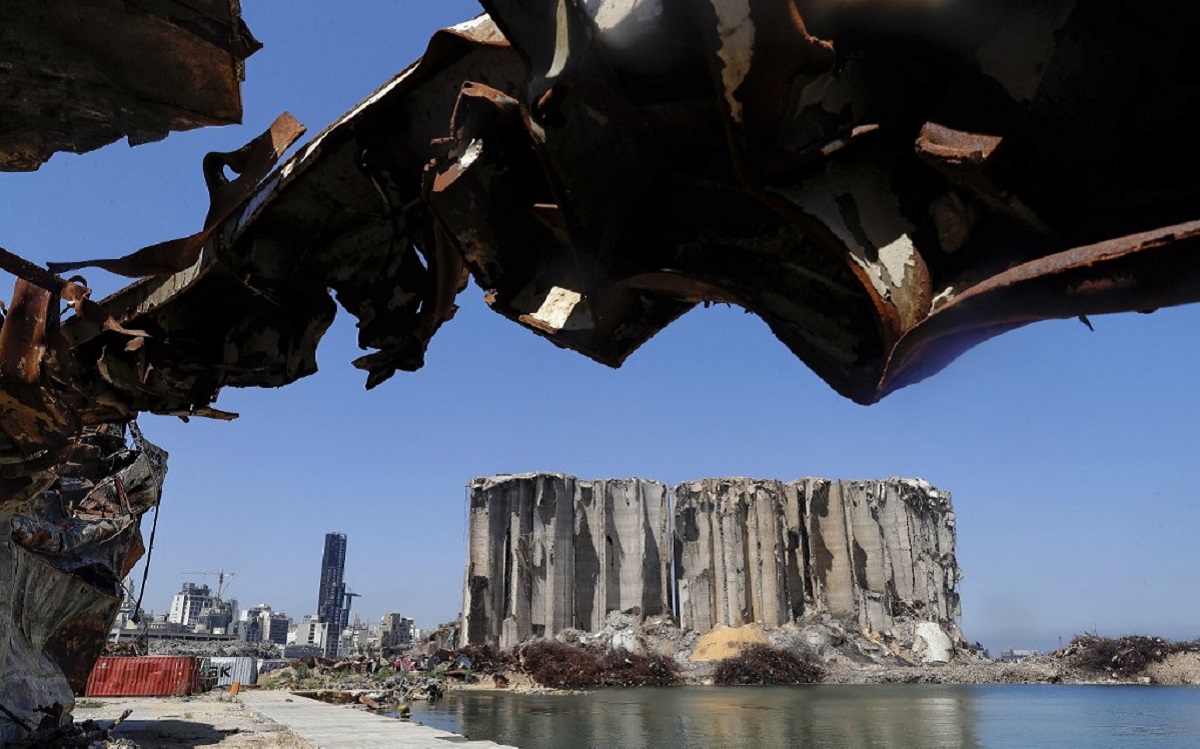
Stacking the courts
In Lebanon, the Higher Judicial Council, which helps to appoint judges to specific courts, as well as the wider judicial system, has often been used by members of the political class as a way of protecting their interests. For the Higher Judicial Council, eight of the 10 seats are chosen by the president and prime minister.
“The way that judges have been appointed is really used by sectarian criteria and each political side appoints the person who serves their interests,” Aya Majzoub, explained. “They often use judicial appointments as a way to promote, reward or punish judges.”
According to Majzoub, the appointment of judges has more to do with what they can do to help someone from the elite advance their interests rather than if they are qualified for the job.
Due to the lack of independence of the Higher Judicial Council, Majzoub fears that this will carry over into the port explosion investigation.
The explosion was originally being investigated by Judge Fadi Sawan and a small team. He was fired mid-February by the Supreme Court that ruled in favor of a complaint submitted by two of the politicians he had called in for investigation, former Finance Minister Ali Hassan Khalil and Former Public Works Minister Ghazi Zeaiter, both members of Amal Movement, a political ally of Hezbollah.
Sawan was fired on the grounds that his house had been affected by the blast, therefore he could not be objective. He was replaced the next day with Tarek al Bitar. Bitar himself had been rejected by the Higher Judicial Council when the body chose Sawan. The council refused to give any reasons for its decisions, saying that their “deliberations are confidential.”
Beyond going back and forth on who should lead the investigation, the Judicial Council is also set to receive the results of the probe and then decide whether anyone should be prosecuted in the case.
The Judicial Council members are chosen by the cabinet, but they have to be approved by the Higher Judicial Council. Given the latter’s close proximity to the government, this has created concern that its members will follow the interests of their political affiliates rather than seeking any sort of justice.
“It’s been widely acknowledged by human rights groups, civil society, and UN bodies that Lebanese judiciary fundamentally lacks any independence from the executive,” Majzoub said. “And has repeatedly been used as a vehicle for political interference in the judiciary, often to shield politicians’ supporters from accountability.”
In light of these concerns, Majzoub has been advocating for a “parallel strategy” that sees an international fact-finding mission come to Lebanon in order to thoroughly investigate the blast.
At the same time, while the investigation is taking place, reforms should be passed in order to establish an independent judiciary that can fairly act on the findings from the investigation.
However, if it takes too long for any of this to happen, then it could potentially not matter if there is an international investigation or reforms are passed, she points out.
“The longer that an investigation drags out, the longer that there is no impartial investigation, the more likely it is that the truth won’t come out because there is a lot of time for people to hide evidence, to destroy evidence, people just lose their memory since it was something that happened almost a year ago,” Majzoub said.
Over-reliant on military courts
The Higher Judicial Council is not the only body in Lebanon that lacks transparency. The military courts are notoriously shrouded in secrecy. While he was in charge, Sawan’s investigation was also kept tightly under wraps, with only a small trickle of information making it out to the public.
According to Majzoub, this lack of openness is part of the culture of Lebanon’s judiciary, and that there is very little sharing of information despite Lebanon having freedom of information law in place.
“Whenever we as Human Rights Watch request information from state institutions, it’s often met with suspicion,” she stated. “Like why do you need this information? Or, if they give it to us, it’s a favor rather than our right to ask for certain information.”
This lack of transparency has created a culture of distrust towards the judicial system amongst the Lebanese people. Many investigations are never brought to conclusion.
“We hear that an investigation has begun, for example, for excessive use of force, after a political assassination, but we never hear where the investigation went,” Majzoub explained.
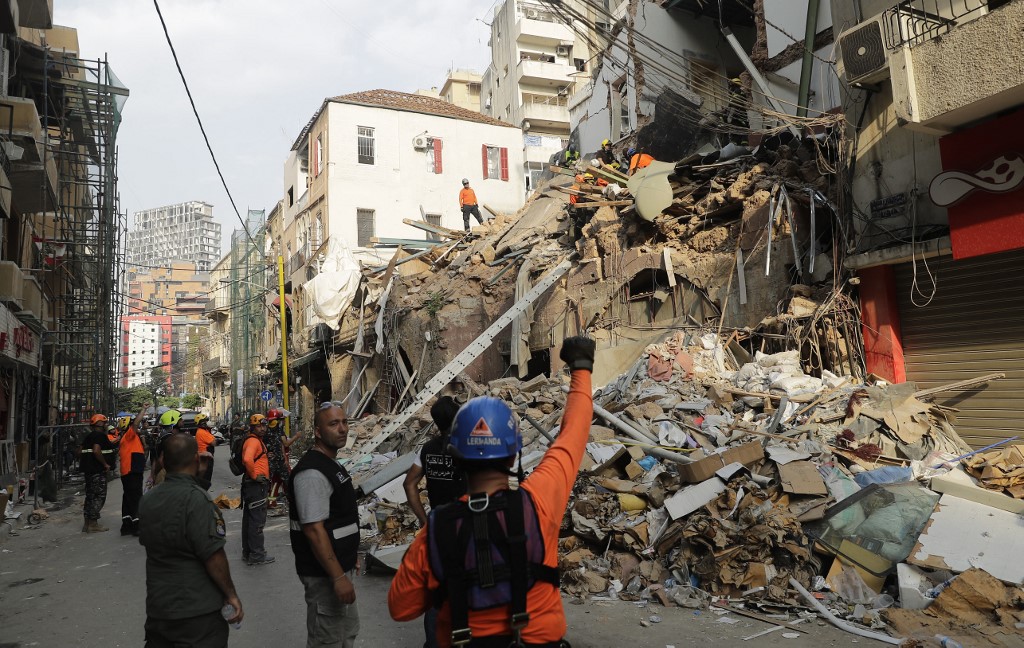
Fighting the investigation
Since the start of the investigation, many in Lebanon’s political class have made it clear that they oppose the inquiry. This happened especially when Sawan called several ministers in for questioning.
When it was announced on December 10, 2020 that caretaker Prime Minister Hassan Diab, former Minister of Finance Ali Hassan Khalil and former Minister of Public Works Ghazi Zeaiter and Yousef Finianos were being charged with negligence and were being called in for questioning, the political blowback was almost instantaneous.
Diab, in a statement, soon after the charges were announced, said that his conscience was clear over the port explosion and that he was surprised to be targeted by the investigation.
The Amal Movement, headed by the Speaker of Parliament Nabih Berri, said that Sawan’s actions “raised question marks about the course of the investigation and its procedures” and Hezbollah accused Sawan of “political targeting.” Some of the loudest criticism came from Prime Minister-designate Saad Hariri who said that this was a “clear and flagrant violation of the Constitution.”
Emboldened by the outcry of support made by the political elite, the ministers refused outright to show up for their scheduled questioning, with Hassan Khalil and Zeaiter taking it a step further by accusing Sawan of violating the constitution and filed a motion to have him removed from his post.
The Court of Cassation ruled in late January that Sawan could resume his investigation. However, he was later removed from the investigation entirely. If they had continued to refuse questioning after Sawan restarted his investigation, then an arrest warrant could have been issued and security forces deployed to uphold it.
Despite this, Interior Minister Fahmi said at the time that he would not order the security forces to arrest any of the former ministers even if a warrant was issued.
For Majzoub, it is imperative that those formerly and currently in power are held accountable for the port explosion. If they are held to account, then it creates the possibility of creating a fairer system in Lebanon that puts more emphasis on the rule of law.
However, if they are not, then it would only go to prove that they are untouchable.
“It would further entrench this culture of impunity that has prevailed since the civil war,” Majzoub argued. “And really prove to the establishment and political elite that there is nothing that can threaten their hold on power and that they have built a really resilient system that won’t threaten their hold on power.”
In the end, the political powers were able to win against Sawan with the court’s ruling that he should be removed from the investigation.
Majzoub was quick to condemn the decision by the courts, calling it a “mockery of justice” and an “insult to the victims of the blast and the Lebanese public.”
“The courts have drawn the “red lines:” politicians are not subject to the rule of law.”
Bitar was chosen soon after Sawan’s dismissal and has until now shown no signs of pursuing an investigation into any politicians. So far, Bitar has questioned dozens of suspects and witnesses, including customs chief Badri Daher. He is also looking into alleged connections to the Syrian regime through the UK-based company Savaro ltd and is requesting that banking secrecy protecting the company’s accounts be lifted.
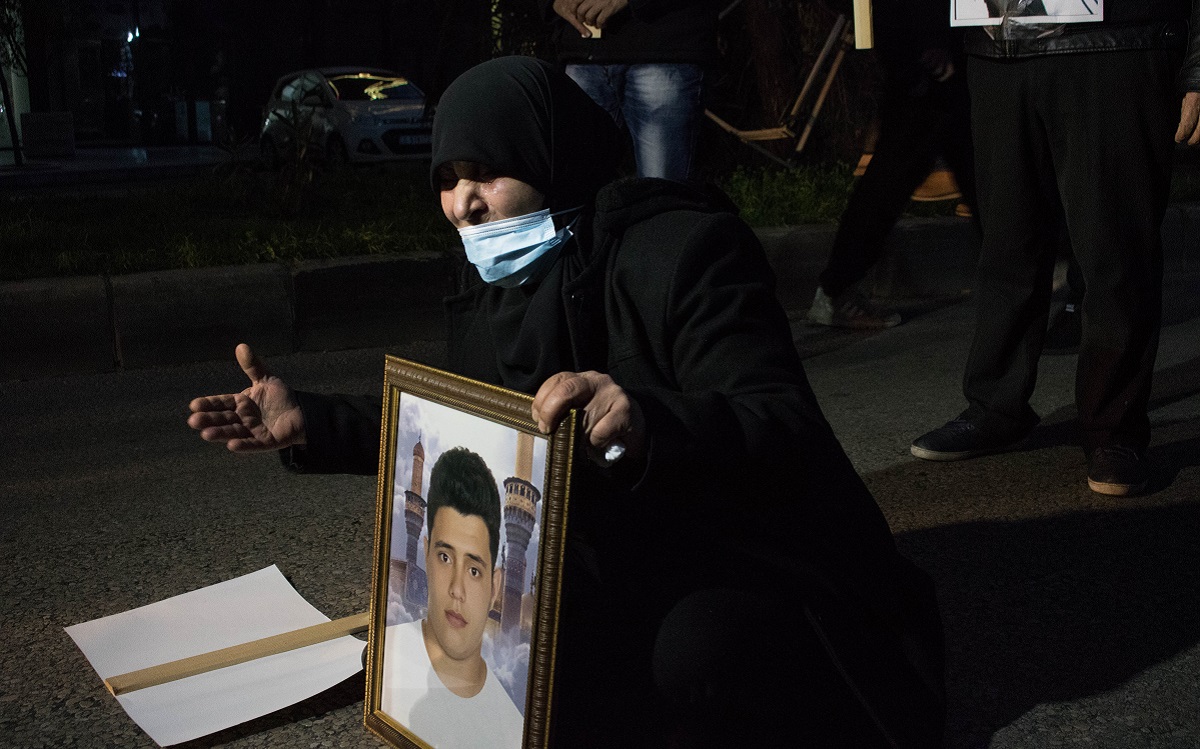
International silence
Nearly a year after the Beirut port blast, there has been little talk in the international community on the lack of progress being made in the investigation and, according to Majzoub, an increasing lack of interest in Lebanon.
Despite calls by human rights organizations, civil society groups, as well as families of victims immediately following the explosion, there was never a serious effort to mount an international investigation into the blast.
While doing advocacy work in the summer of 2020, HRW looked to promote the idea of an international investigation but was met with chirping crickets, Majzoub said.
“The response that we got across the board was that we’ll wait and see the outcome of this investigation then if it is not impartial, then we see what we do,” Majzoub recalled. “But that answer is just not acceptable.”
According to Majzoub, the UN Special Rapporteur on toxics and human rights (formally known as the UN Special Rapporteur on the implications for human rights of environmentally sound management and disposal of hazardous substances and wastes) could investigate the blast. She cited the investigation by the Special Rapporteur on extrajudicial, summary, or arbitrary executions into the killing of Saudi journalist Jamal Khashoggi as an example.
Even though the Saudi government was against any investigation, the Special Rapporteur was able to look into Khashoggi’s death and issue a report on what happened. Majzoub believes that something similar could be done regarding the blast, although they would need cooperation from the Lebanese government in order to speak with some people and to get certain documents.
However, there has been no indication from the UN or the Special Rapporteur that this will happen.
Majzoub says that people need to continue fighting if they have any hopes of seeing any sort of justice.
“We [HRW] are doing what the victims are doing,” she said. “That is keeping the issue alive in the media, keeping pressure on Lebanese policymakers and Lebanese authorities to keep moving with the case.”
While lockdowns, an economic crisis and general fatigue have led to smaller protests, many Lebanese are refusing to stay quiet until they see justice for the explosion that left half the city in ruins.
Nicholas Frakes is a multimedia journalist with NOW. He tweets @nicfrakesjourno.






